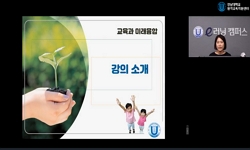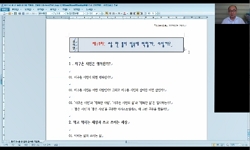The purpose of this study is to investigate the level of financial knowledge, behavior, and attitudes of Korean adults in the capital area and to compare it with that of adults in other areas by analyzing the results of the financial literacy survey c...
http://chineseinput.net/에서 pinyin(병음)방식으로 중국어를 변환할 수 있습니다.
변환된 중국어를 복사하여 사용하시면 됩니다.
- 中文 을 입력하시려면 zhongwen을 입력하시고 space를누르시면됩니다.
- 北京 을 입력하시려면 beijing을 입력하시고 space를 누르시면 됩니다.
https://www.riss.kr/link?id=A104569198
- 저자
- 발행기관
- 학술지명
- 권호사항
-
발행연도
2017
-
작성언어
-
-
주제어
금융 이해력 ; 금융 지식 ; 금융 행위 ; 금융 태도 ; 수도권 ; 금융교육 ; Financial Literacy ; Financial Knowledge ; Financial Behavior ; Financial Attitude ; Capital Area ; Financial Education
-
KDC
911.50
-
등재정보
KCI등재
-
자료형태
학술저널
-
수록면
1-22(22쪽)
- DOI식별코드
- 제공처
-
0
상세조회 -
0
다운로드
부가정보
다국어 초록 (Multilingual Abstract)
Residents in the capital area were less knowledgeable about compound interest, the effects of rapid inflation, preparedness for emergency expenditure, and personal credit rating. On the other hand, their scores were highest for the survey items such as diversified investment, financial fraud, and household budget. Finally, their preference for credit cards was higher than that of residents in other areas.
The purpose of this study is to investigate the level of financial knowledge, behavior, and attitudes of Korean adults in the capital area and to compare it with that of adults in other areas by analyzing the results of the financial literacy survey conducted in 2014. The average score of financial literacy of Korean adults was 67.8 out of 100 points. Financial knowledge score was the highest, while financial behavior and attitude scores were relatively low. The financial literacy level of adult residents in the capital area was the second highest at 68.2 points, following that of residents in the Jeolla-do area. The level of residents in the capital area was the second highest in financial knowledge and behavior categories, but the lowest in financial attitude category, implying that individual’s rich knowledge does not contribute to desirable attitudes.
Residents in the capital area were less knowledgeable about compound interest, the effects of rapid inflation, preparedness for emergency expenditure, and personal credit rating. On the other hand, their scores were highest for the survey items such as diversified investment, financial fraud, and household budget. Finally, their preference for credit cards was higher than that of residents in other areas.
국문 초록 (Abstract)
하위 영역별로 구분해서 비교하면, 수도권 거주 성인이 금융 지식과 금융 행위에서는 두 번째로 높은 수준이었지만 금융 태도 영역에서는 가장 낮았다.
개인의 풍부한 지식이 바람직한 태도로 이어지지 못하고 있다는 뜻이다. 항목별로 세분할 때, 수도권 거주 성인은 복리 이자, 물가 상승의 영향, 비상 지출에 대한 대비 같은 항목에서 기타 권역 거주 성인에 비해 이해력이 부족하 였으며, 개인 신용 등급에 대한 지식도 결여되어 있었다. 반면에 분산 투자, 금융사기, 가계 예산 보유의 경우에는 수도권 거주 성인의 점수가 가장 높았 으며, 신용카드 선호도 역시 제일 높았다.
이 연구는 우리나라 성인을 대상으로 이루어진 금융 이해력 조사 결과를 통해 수도권 지역에 거주하는 성인의 금융 지식, 금융 행위, 금융 태도의 수준과 현황을 파악하고 다른 지역의 결과...
이 연구는 우리나라 성인을 대상으로 이루어진 금융 이해력 조사 결과를 통해 수도권 지역에 거주하는 성인의 금융 지식, 금융 행위, 금융 태도의 수준과 현황을 파악하고 다른 지역의 결과와 비교하는 것을 목적으로 한다. 한국 성인의 금융 이해력 평균 점수는 100점 만점에 67.8점이었으며, 영역별로 구분하면 금융 지식 점수가 가장 높았고 금융 행위와 금융 태도 점수는 상대 적으로 저조했다. 수도권 거주 성인의 금융 이해력 점수는 68.2점으로 전라권 거주 성인에 이어 두 번째였으며 경상권, 충청권 거주 성인보다는 높았다.
하위 영역별로 구분해서 비교하면, 수도권 거주 성인이 금융 지식과 금융 행위에서는 두 번째로 높은 수준이었지만 금융 태도 영역에서는 가장 낮았다.
개인의 풍부한 지식이 바람직한 태도로 이어지지 못하고 있다는 뜻이다. 항목별로 세분할 때, 수도권 거주 성인은 복리 이자, 물가 상승의 영향, 비상 지출에 대한 대비 같은 항목에서 기타 권역 거주 성인에 비해 이해력이 부족하 였으며, 개인 신용 등급에 대한 지식도 결여되어 있었다. 반면에 분산 투자, 금융사기, 가계 예산 보유의 경우에는 수도권 거주 성인의 점수가 가장 높았 으며, 신용카드 선호도 역시 제일 높았다.
동일학술지(권/호) 다른 논문
-
- 경인교육대학교 기전문화연구소
- 한송이(Han, Song Yi)
- 2017
- KCI등재
-
- 경인교육대학교 기전문화연구소
- 원두희(Won, Doo-Hee)
- 2017
- KCI등재
-
- 경인교육대학교 기전문화연구소
- 전종한(Jeon, Jong Han)
- 2017
- KCI등재
-
- 경인교육대학교 기전문화연구소
- 이차희(Lee, Cha-Hee)
- 2017
- KCI등재





 스콜라
스콜라





